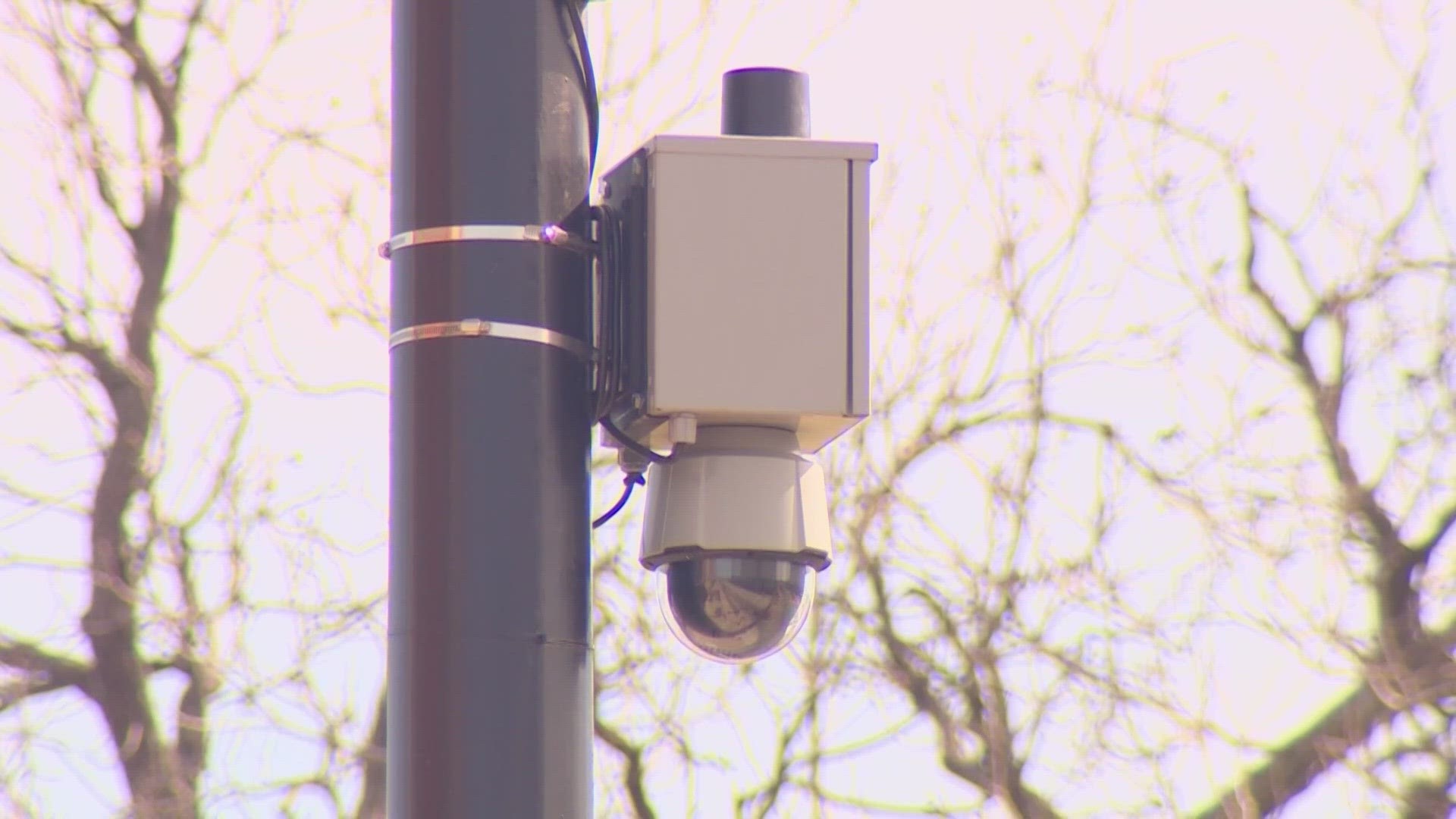FORT WORTH, Texas — The City of Fort Worth and its police department are planning to install gunshot-detecting microphones atop utility poles around town.
The technology will help authorities gather leads more efficiently by harvesting evidence almost immediately after a violent crime is detected.
Police presented the plan to city council in May.
"These are the types of calls that are often very hard to pin down," Fort Worth police Sgt. Jason Spencer told WFAA in May. "This is an additional piece of integration that will help us... address some of these crimes that, honestly, are just getting missed right now."
The sensors are programmed to alert police only after detecting gunshots, not other noises or voices. One manufacturer compared its microphone system to an Amazon smart-home device which listens once a user says "Alexa."
After a gunshot, the devices would prompt existing cameras and license-plate readers to point in the direction of the sound. Integrated, smart streetlights could also illuminate darker areas to give police a better look at a potential scene.
"We might hear a gunshot from a drive-by shooting, and then see that vehicle on camera fleeing at a high rate of speed and get a license plate off it," Spencer said.
It's not yet clear when city workers will begin installing the sensors. Fort Worth police in May told city councilmembers the department planned to secure a grant to pay for the technology.
Initially, police will place the microphones in communities where gunshots often break the night's silence. Many of these locations already have Flock cameras, which automatically read license plates.
"It'll be like having a really attentive neighbor," Spencer said.
City Councilman Michael Crain said he'd support using taxpayer money for more gunshot detectors, assuming the pilot program works as intended.
"Any time you have objective technology - body cameras and everything else - I'm very supportive of that," Crain told WFAA in May.
Crain said it's important to "balance" concerns about privacy, but added that Fort Worth "can't continue to grow and be prosperous as a city if people don't feel safe."
But gunshot detectors are not universally accepted.
Chicago's city watchdog issued a report noting that gunshot detectors "rarely lead to evidence of a gun-related crime."
New Orleans abandoned similar technology after police could not demonstrate the sensors cut crime. But years later, Crescent City leaders are considering redeploying the equipment.
Chicago and New Orleans used ShotSpotter acoustic gunshot technology. A different company would make Fort Worth's sensors.
"We support our public safety officers," Crain said. "We don't follow the lead of every other, larger city."
"If we work together to tell how this technology will help keep people safe, I think we can just tell the story better than maybe some of these other cities," he added.

